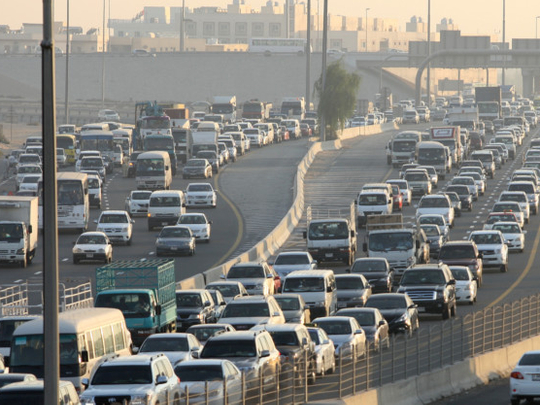
DUBAI: A ban on buses through the airport tunnel, imposed less than a month ago, has increased travel times by almost 50 per cent say commuters as they are forced to deal with increased rush hour traffic on alternate routes.
Buses were banned in the 1.5km tunnel by the Roads and Transport Authority (RTA) on February 14, compelling thousands of office-goers and schoolchildren to use an alternate route. Many say this has led to long traffic snarls on those roads and unnecessary delays. “Earlier I would be home by around 6:30pm but these days, I am never home before 7:20pm as we now have to take a detour via Al Garhoud. It’s a lot of extra time spent on the road,” said Indian Pamela Gonsalves who lives in Al Qusais and goes to work in Dubai Internet City in a 30-seater.
According to the RTA, the decision to ban buses from the busy tunnel was made based on several studies.
Clogged
However, bus drivers who had been using the tunnel for years say travelling on other routes since the ban has been nothing short of a nightmare. “I have tried Al Itihad Road and Shaikh Mohammad Bin Zayed Road, but during rush hours they are all clogged, especially in the evenings,” said Ashraf Khan who runs a daily bus service for office-goers from Al Qusais to Jebel Ali and back. “We used the tunnel despite the Salik toll gate because it cut a lot of travel time.”
The busy tunnel runs along D60 and joins Beirut Road with Nadd Al Hamar Road on either side. It also connects Al Twaar, Rashidiya, Umm Al Ramool and Al Garhoud - all areas where a number of schools are located.
“With the new rule, buses now have to take longer routes to reach destinations and it’s hurting my child’s timetable,” said an Indian mum. “To negate the extra minutes spent in traffic on Shaikh Mohammad Bin Zayed Road, my son’s bus has now started picking up children almost 20 minutes ahead of its usual time,” he said.












